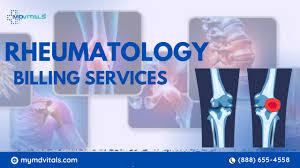Addiction is often described as a family disease, as it impacts not only the individual struggling with substance use but also their loved ones. Family support plays a crucial role in the recovery process, serving as a foundational element that can significantly influence treatment outcomes. Here’s an in-depth look at how family support contributes to addiction recovery.
1. Emotional Support
Building a Supportive Environment
Family members can provide invaluable emotional support to individuals in recovery:
- Encouragement: Positive reinforcement from family can motivate the person in recovery to stay committed to their treatment plan.
- Understanding: Family members who educate themselves about addiction can better empathize with the struggles of their loved ones, fostering a nurturing environment.
2. Promoting Accountability
Establishing Trust
Family support encourages accountability, which is essential for recovery:
- Monitoring Progress: Family members can help track progress and identify any signs of relapse, acting as a safety net during challenging times.
- Setting Boundaries: Healthy boundaries established by family can help the individual recognize the seriousness of their situation and encourage responsible behavior.
3. Facilitating Communication
Open Dialogue
Effective communication within the family is vital for recovery:
- Expressing Feelings: Family members can create a safe space for the individual to express feelings, fears, and challenges without judgment.
- Conflict Resolution: Open lines of communication can help address underlying family issues that may contribute to stress and substance use.
4. Encouraging Participation in Treatment
Active Involvement
Family members can play an active role in the treatment process:
- Accompanying to Appointments: Attending therapy sessions or support group meetings with the individual can demonstrate commitment and support.
- Engaging in Family Therapy: Many treatment programs incorporate family therapy, allowing families to work together to heal and understand the dynamics at play.
5. Providing Practical Support
Daily Assistance
Family members can assist with practical aspects of recovery:
- Transportation: Helping with transportation to therapy sessions or support groups can reduce barriers to attendance.
- Daily Routines: Assisting with daily responsibilities, such as childcare or household tasks, can relieve stress for the individual in recovery.
6. Educating Themselves
Understanding Addiction
Family members benefit from understanding addiction as a disease:
- Resources and Workshops: Engaging in educational workshops or reading materials about addiction can empower families to provide informed support.
- Awareness of Co-Occurring Disorders: Understanding potential mental health issues that accompany addiction can help families respond appropriately to their loved one’s needs.
7. Building Resilience
Fostering Coping Strategies
Family support can help build resilience for both the individual in recovery and family members:
- Developing Coping Skills: Families can learn together how to cope with stress and challenges that arise during the recovery process.
- Encouraging Healthy Habits: Families can engage in healthy activities together, such as exercise or mindfulness practices, promoting overall well-being.
8. Reducing Stigma
Normalizing the Experience
Family support can help combat the stigma associated with addiction:
- Open Discussions: Families who openly discuss addiction can break down barriers and encourage others to seek help.
- Advocacy: Families can become advocates for change, raising awareness about addiction and the importance of support systems.
9. Celebrating Milestones
Acknowledging Progress
Recognizing and celebrating achievements in recovery is essential:
- Milestone Celebrations: Families can celebrate sobriety anniversaries, treatment completion, or other significant milestones that reinforce positive behavior.
- Encouraging Continued Growth: Celebrating progress can motivate individuals to continue their recovery journey and pursue new goals.
Conclusion
Family support is a vital component of addiction recovery, providing emotional, practical, and educational resources that enhance treatment outcomes. By fostering open communication, promoting accountability, and actively participating in the recovery process, families can significantly impact their loved one’s journey toward healing. Understanding addiction as a family disease and engaging in supportive practices can create a nurturing environment that encourages recovery and resilience. For individuals in recovery, knowing they have a strong support system can make all the difference in achieving lasting sobriety.








